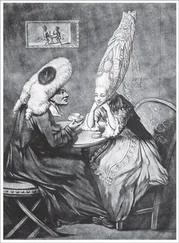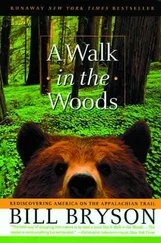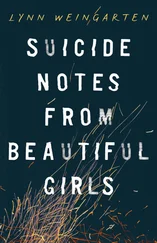Bill Bryson - Notes from a small Island
Здесь есть возможность читать онлайн «Bill Bryson - Notes from a small Island» весь текст электронной книги совершенно бесплатно (целиком полную версию без сокращений). В некоторых случаях можно слушать аудио, скачать через торрент в формате fb2 и присутствует краткое содержание. Жанр: Современная проза, на английском языке. Описание произведения, (предисловие) а так же отзывы посетителей доступны на портале библиотеки ЛибКат.
- Название:Notes from a small Island
- Автор:
- Жанр:
- Год:неизвестен
- ISBN:нет данных
- Рейтинг книги:4 / 5. Голосов: 2
-
Избранное:Добавить в избранное
- Отзывы:
-
Ваша оценка:
- 80
- 1
- 2
- 3
- 4
- 5
Notes from a small Island: краткое содержание, описание и аннотация
Предлагаем к чтению аннотацию, описание, краткое содержание или предисловие (зависит от того, что написал сам автор книги «Notes from a small Island»). Если вы не нашли необходимую информацию о книге — напишите в комментариях, мы постараемся отыскать её.
Notes from a small Island — читать онлайн бесплатно полную книгу (весь текст) целиком
Ниже представлен текст книги, разбитый по страницам. Система сохранения места последней прочитанной страницы, позволяет с удобством читать онлайн бесплатно книгу «Notes from a small Island», без необходимости каждый раз заново искать на чём Вы остановились. Поставьте закладку, и сможете в любой момент перейти на страницу, на которой закончили чтение.
Интервал:
Закладка:
The people at Cinerama Corporation understood this well some forty years ago and made a deathdefying rollercoaster ride the focus of their advertising campaign. The first and last time I saw This Is Cinerama was in 1956 on a family trip to Chicago. The movie had been on general release since 1952 but such was its popularity in the big cities, and its unavailability in places like Iowa, that it ran for years and years, though it must be said that by the time we saw it most of the audience consisted of people in bib overalls chewing on stalks of grass. My memories of it were vague I was just four years old in the summer of 1956 but fond, and I couldn't wait to see it now.
Such was my eagerness that I hastened out of the Museum of Various Things Involving Celluloid and across to the nearby entrance of the Pictureville Cinema half an hour early and stood, alone in a freezing drizzle, for fifteen minutes before the doors were opened. I bought a ticket, stipulating a place in the centre of the auditorium and with plenty of room for vomiting, and found my way to my seat. It was a wonderful cinema, with plush seats and a big curving screen behind velvet curtains. For a few minutes it looked as if I was going to have the place to myself, but then others started coming in and by two minutes to showtime it was pretty well full.
At the stroke of two, the room darkened and the curtains opened perhaps fifteen feet a fraction of their total sweep and the modest portion of exposed screen filled with some introductory footage by Lowell Thomas (a sort of 1950s American version of David Attenborough but looking like George Orwell) sitting in a patently fake study filled with globetrotting objects, preparing us for the wonder we were about to behold. Now you must put this in its historical context. Cinerama was created in a desperate response to television which in the early 1950s was threatening to put Hollywood clean out of business. So this prefatory footage, filmed in black and white and presented in a modest rectangle the shape of a television screen, was clearly intended to implant a subliminal reminder that this was the sort of image we were used to looking at these days. After a brief but not uninteresting rundown on the . history of the cinematic arts, Thomas told us to sit back and enjoy the greatest visual spectacle the world had ever seen. Then he disappeared, rich orchestral music rose from every quarter, thecurtains drew back and back and back to reveal a majestic curved screen and suddenly we were in a world drenched in colour, on a rollercoaster on Long Island, and gosh was it good.
I was in heaven. The 3D effect was far better than you would expect with such a simple and ancient projection system. It really was like being on a rollercoaster, but with one incomparable difference: this was a 1951 rollercoaster, rising high above car parks full of vintage Studebakers and De Sotos and thundering terrifyingly past crowds of people in capacious trousers and colourful baggy shirts. This wasn't a movie. It was time travel.
I really mean that. Between the 3D wizardry, the stereophonic sound and the sparkling sharpness of the images, it was like being thrust magically back forty years in time. This had a particular resonance for me because in the summer of 1951, when this footage was being shot, I was curled up in my mother's abdomen, increasing body weight at a rate that I wouldn't match until I quit smoking thirtyfive years later. This was the world I was about to be born into, and what a delightful, happy, promising place it seemed.
I don't think I have ever spent three such happy hours. We went all over the world, for This Is Cinerama wasn't a movie in a conventional sense but a travelogue designed to show this wonder of the age to best effect. We glided through Venice on gondolas, watched from the quaysides by people in capacious trousers and colourful baggy shirts; listened to the Vienna Boys Choir outside the Schonbrunn Palace; watched a regimental tattoo at Edinburgh Castle; saw a long segment of Aida at La Scala (bit boring, that); and concluded with a long aeroplane flight over the whole of America. We soared above Niagara Falls a place I had been the summer before, but this was quite unlike the touristclogged nightmare I had visited, with its forests of viewing towers and international hotels. This Niagara Falls had a backdrop of trees and low buildings and thinly used car parks. We visited Cypress Gardens in Florida, flew low over the rippling farm fields of Middle America, and had an exciting landing at Kansas City Airport. We brushed over the Rockies, dropped into the staggering vastness of the Grand Canyon, and flew through the formidable, twisting gorges of Zion National Park while the plane banked sharply past alarming outcrops of rock and Lowell Thomas announced that such a cinematic feat had never before been attempted and all of this to a swelling stereophonic rendition of 'God Bless America' by the Mormon Tabernacle Choir, which began with a melodic hum and rose to a fullthroated let'sgivethoseKrautsalicking crescendo. Tears of joy and pride welled in my sockets and it was all I could do to keep from climbing on to my seat and crying: 'Ladies and gentlemen, this is my country!'
And then it was over and we were shuffling out into the drizzly twilit bleakness of Bradford, which was something of a shock to the system, believe me. I stood by a bronze statue of J.B. Priestley (posed with coattails flying, which makes him look oddly as if he has a very bad case of wind) and stared at the bleak, hopeless city before me and thought: Yes, I am ready to go home.
But first, I additionally thought, I'll just have a curry.
CHAPTER SEVENTEEN
I FORGOT TO MENTION CURRY HOUSES EARLIER IN MY BRIEF LIST OF Bradford's glories, which was a terrible oversight. Bradford may have lost a wool trade but it has gained a thousand excellent Indian restaurants, which I personally find a reasonable swap as I have a strictly limited need for bales of fibre but can take about as much Indian food as you care to shovel at me.
The oldest of the Bradford curry houses, I'm told, and certainly one of the best and cheapest, is the Kashmir, just up the road from the Alhambra. There is a proper restaurant upstairs, with white tablecloths, gleaming cutlery and poised, helpful waiters, but aficionados descend to the basement where you sit with strangers at long Formicatopped tables. This place is so hard core that they don't bother with cutlery. You just scoop the food in with hunks of nan bread and messy fingers. For .3 I had a small feast that was rich, delicious and so hot that it made my fillings sizzle.
Afterwards, bloated and sated and with a stomach bubbling away like a heated beaker in a madscientist movie, I stepped out into the Bradford evening and wondered what to do with myself. It was just after six o'clock on a Saturday evening, but the place felt dead.
I was acutely and uncomfortably aware that my home and dear family were just over the next range of hills. For some reason I had it in my head that it would be cheating to go home now with the trip half finished, but then I thought: Sod it. I'm cold and lonesome and I'm not about to spend a night in a hotel twenty miles from my own home. So I walked to Forster Square Station, took a rattling, empty train to Skipton and a cab to the little Dales village where I live, and had the driver drop me down the road so that I'could approach the house on foot.
What a joy it is to arrive after dark at a snuglooking house, its windows filled with welcoming light, and know that it is yours and that inside is your family. I walked up the drive and looked through the kitchen window, and there they all were gathered round the kitchen table playing Monopoly, bless their wholesome little hearts. I stared at them for ages, lost in a glow of affection and admiration and feeling like Jimmy Stewart in It's a Wonderful Life when he gets to spy on his own life. And then I went in.
Читать дальшеИнтервал:
Закладка:
Похожие книги на «Notes from a small Island»
Представляем Вашему вниманию похожие книги на «Notes from a small Island» списком для выбора. Мы отобрали схожую по названию и смыслу литературу в надежде предоставить читателям больше вариантов отыскать новые, интересные, ещё непрочитанные произведения.
Обсуждение, отзывы о книге «Notes from a small Island» и просто собственные мнения читателей. Оставьте ваши комментарии, напишите, что Вы думаете о произведении, его смысле или главных героях. Укажите что конкретно понравилось, а что нет, и почему Вы так считаете.












